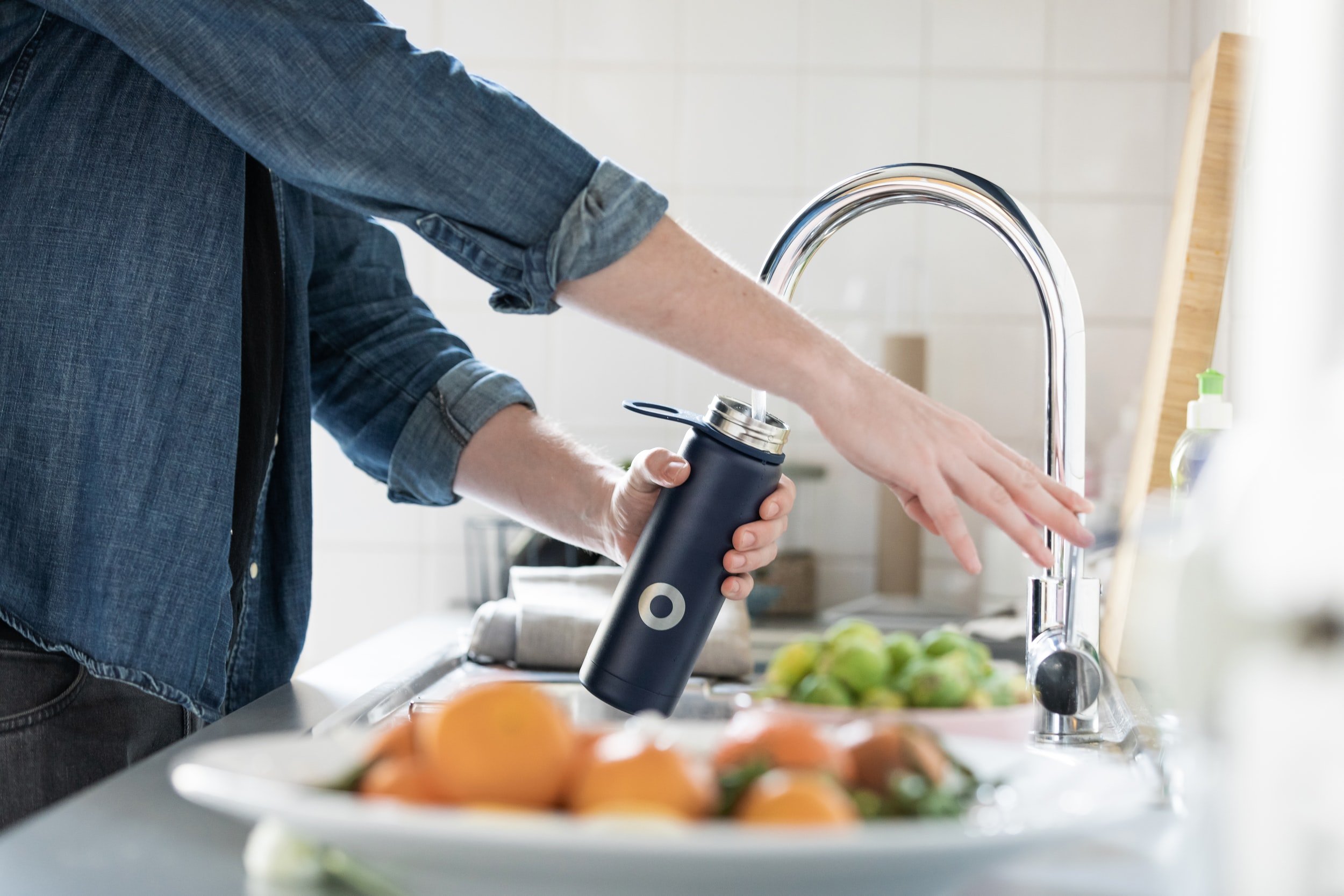Updated: 3/18/22
While water might seem basic on the surface, it’s actually the basis of beverages. Though it has zero calories and no real nutrients, drinking water is essential for humans. There’s a lot of conflicting data about how much water Americans drink per day, but according to National Geographic, which cites data from Beverage Marketing Corporation, a family of four can consume a case of plastic water bottles in a week — and that’s a conservative estimate. It might not seem like much on the surface, but added up, it equates to 1.7 billion bottles per year! Sadly, most of those bottles end up in landfills, contributing to the earth’s serious pollution problems. To be specific, the Container Recycling Institute estimates that more than 60 million plastic bottles end up in landfills and incinerators daily.
So what can you do to help reverse this trend and still stay hydrated? Simple: Fill your glasses and reusable bottles with filtered water from your home. This isn’t just the better option when it comes to environmental protection and sustainability, but it’s also a healthier choice for your body and life.
Still unconvinced to switch? Here are five benefits of ditching plastic that will keep you (and the earth) healthy and happy:
1. YOU'LL SAVE MONEY If you buy a new plastic water bottle every time you’re thirsty, you’re probably shelling out anywhere from $1–$4 per bottle, sometimes more. “According to the Institutes of Medicine, fluid consumption guidelines are 11.5 cups of liquid a day for women, and 15 cups for men,” says Leslie Bonci, MPH, founder of Active Eating Advice. If your average plastic bottle is 16.9 ounces and you’re following the guidelines, using your own bottle would save a woman anywhere between $6–24, while a man could save between $8–32, depending on the price of the disposable water bottle. And so many places with high foot traffic — airports, parks and even offices — have water fountains now, so it’s not difficult to find a place to fill your bottle.
2. YOU'LL HELP REDUCE WASTE Nobody wants to be part of polluting the Earth. “Plastic bottles are not often recycled, and the single-use aspect of bottled water promotes waste creation,” explains Mary Ellen Mallia, PhD, director of the office of environmental sustainability at the University at Albany. “A bottle can take up to 1,000 years to decompose.” Essentially, that much more pollution is created by using plastic bottles and if they are not recycled properly, they can lead to the leaching of toxins into the land or, if the bottles are incinerated in waste facilities, toxins in the air. If you have a reusable bottle, you’re not contributing to this garbage.
3. YOU'LL LIKELY DRINK MORE WATER If you carry water with you at all times, chances are you’ll stay more hydrated. “The visual stimulation can encourage us to drink more,” says Bonci. “If we don’t see the water, we may be less likely to think about drinking it.” The key here is to make sure you always have liquid in the bottle. Bonus: Drinking more water can also lead to things like improved skin.
4. YOU'LL AVOID BPA Bisphenol A, or BPA, is a chemical found in many products including plastic water bottles. In many cases, the chemical has been linked to certain cancers. By avoiding disposable plastic bottles altogether, you’re also avoiding exposure to possible life-threatening disease. Glass and stainless steel are great choices.
5. YOU'LL REDUCE CARBON EMISSIONS “Plastic water bottles are often created from oil, specifically a petroleum product called polyethylene terephthalate, also known as PET,” explains Mallia. “This use of oil, coupled with the energy needed to produce the bottle and water, creates carbon emissions.” Therefore, switching to reusable water bottles or a filtered water pitchers can help reduce your carbon footprint.
Tackling our addiction to plastic is overwhelming, but switching from bottled water a refillable container is one small step you can take that can have a huge impact on your future.

